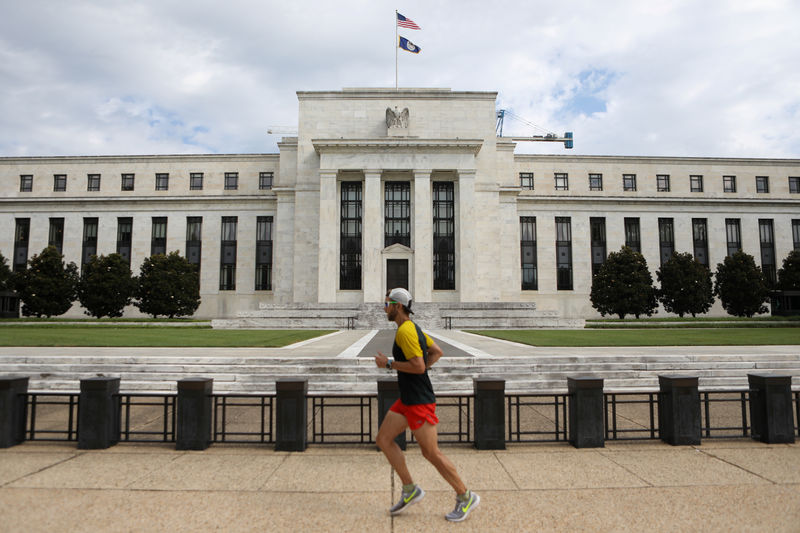By Yasin Ebrahim
Investing.com - The Federal Reserve kept interest rates unchanged Wednesday, and signaled it would trim its monthly bond-buying program before year-end.
The Federal Open Market Committee left its benchmark rate unchanged in the range of 0% to 0.25%.
The committee indicated, however, it would begin cutting its $120 billion monthly bond purchases this year.
The Fed has been laying out the carpet for a tapering announcement for months, after acknowledging the recent economic progress toward its taper threshold of “substantial further progress.”
Fed Chair Jerome Powell said last month the pace of the recovery “has exceeded expectations,” and stressed that there was still a way to go to restore the job market to pre-pandemic levels.
The August jobs report, however, fell well below economists’ forecast, as the impact of the delta variant and hurricane Ida disrupted hiring activity amid an ongoing labor market shortage.
Market participants, however, see the effect of the Delta variant and the hurricane as too short term to filter into the Fed’s thinking on monetary policy.
“The impacts of the delta variant and the hurricane impact, however, are too short term, Darren Schuringa, CEO of ASYMMetrics ETFs said Tuesday in an interview with Investing.com.
The “Fed will be looking at the overall health and labor market and there’s still about 7 million jobs that we haven't recreated since the pandemic that need to come back online,” Schuringa added.
Powell has previously suggested the labor shortage has been driven by temporary factors, which will ultimately subside, driving up job gains heading into the fall.
As the Fed’s bond tapering program looks set to get underway, many analysts have expressed concerns about how soon after the completion of the taper, the central bank will move to lift interest rates.
Traders are expected to shift attention to Powell's press conference at 2.30 PM ET (1830GMT) for more clues on the Fed’s tapering plans and outlook on the economy.
“Look for Powell to pivot away from improvements in employment, which could remain weak due to the Delta variant and Hurricane Ida damages, to improvements we have already seen in financial conditions and a decision to taper asset purchases,” said Diane Swonk, the chief economist at Grant Thornton, in a note.
